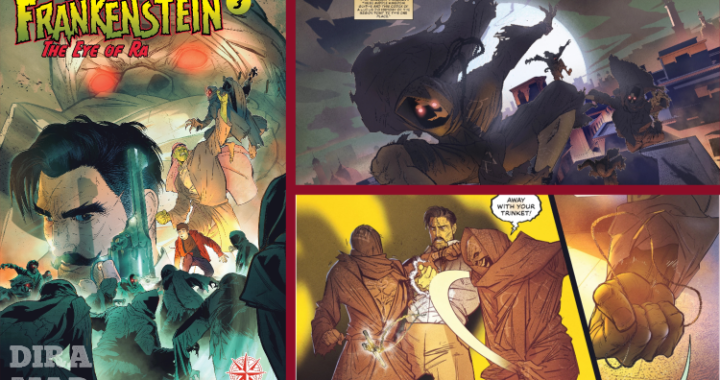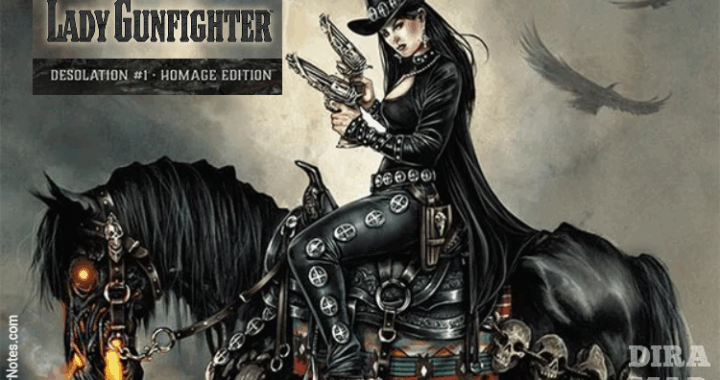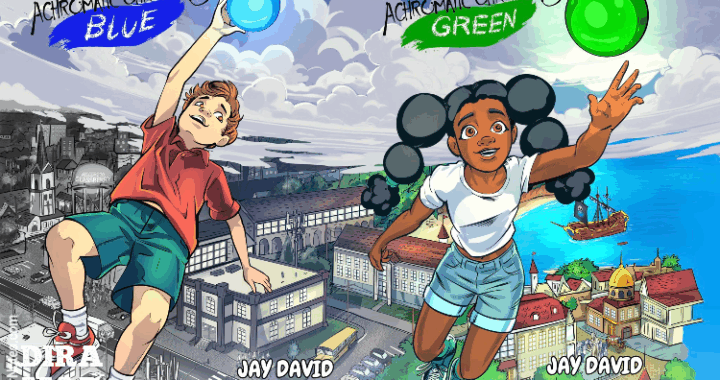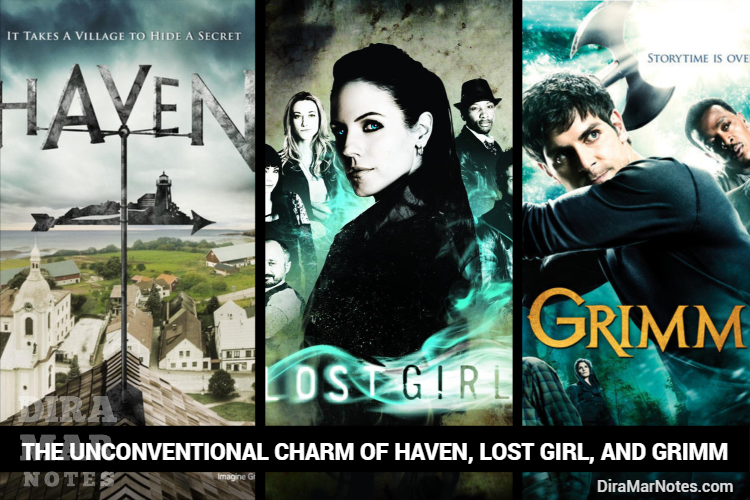
THE UNCONVENTIONAL CHARM OF HAVEN, LOST GIRL, AND GRIMM
While modern TV shows for young adults often face criticism for repetitive storytelling or lackluster execution, some older gems remain an excellent choice for those seeking unique narratives and creative storytelling. Today, I’ll share why the unconventional Haven, Lost Girl, and Grimm deserve a second look and remain underrated.
Because they were unconventional compared to the other popular series of the time, they were not much in the limelight. Why are they interesting, you may ask? I think they are interesting because they took concepts from fairy tales and legends and played with them while keeping a mature tone on the Fantasy and Supernatural. The result was interesting stories and characters. Let’s check them out!
HAVEN (2010–2015)
Creators: Sam Ernst and Jim Dunn (based on Stephen King’s novella The Colorado Kid)
Starring Cast: Emily Rose (Audrey), Lucas Bryant (Nathan), Eric Balfour (Duke), Richard Donat (Vince), John Dunsworth (Dave), and Adam Copeland (Dwight)
Seasons: 5 (streaming for free with ads on the Roku channel and freevee)
Favorite season: #4
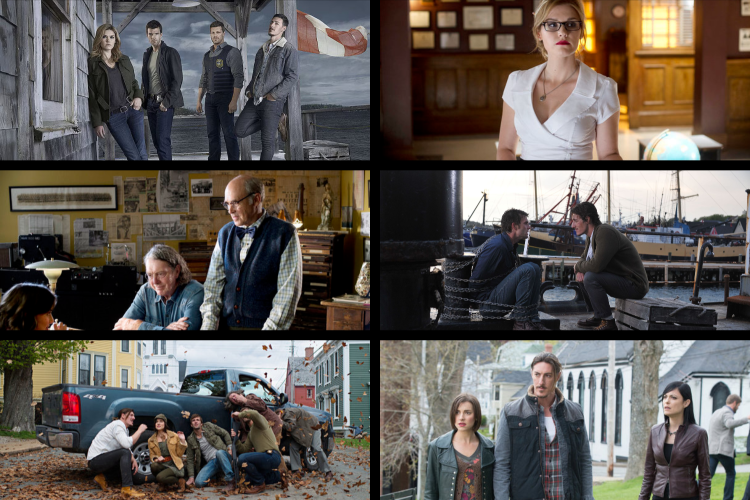
Haven is set in a seemingly idyllic seaside town in Maine, where FBI agent Audrey Parker arrives to investigate supernatural occurrences tied to “The Troubles,” a series of curses afflicting the residents. As Audrey delves deeper, she learns about her mysterious connection to the town and uncovers secrets that could change everything.
While specific budget details are not readily available, Haven was a co-production between the U.S. Syfy network and Canada’s Showcase channel. The series’ production in Canada likely provided cost advantages due to favorable exchange rates and tax incentives, suggesting a more conservative budget compared to U.S.-based productions.
The series ended at season 5, but it could potentially have had more stories to be told. Since it is based on a book, I don’t know how many more stories could have been old. Never read the book it’s based on, so I don’t know how accurate the series was, and I don’t care in this particular case. I believe it would have been safer to say “inspired by” than “based on” to expand the storytelling.
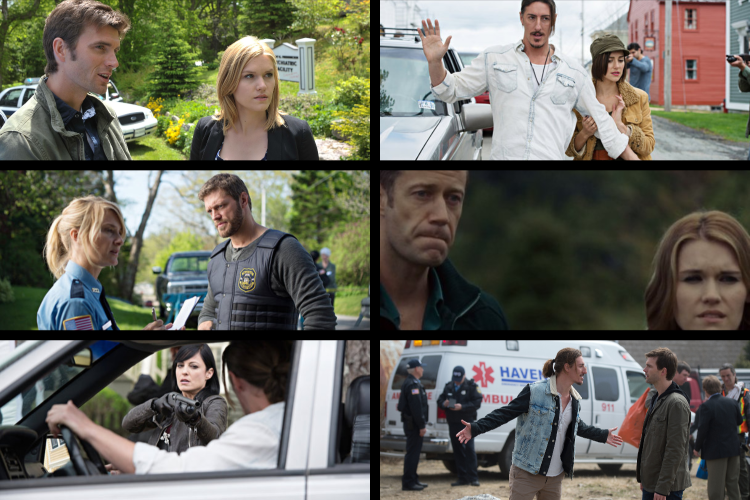
HIGHS
- Atmospheric Setting: The town of Haven feels like a character in its own right, with its foggy shores and eerie mysteries creating a palpable sense of suspense. Its setup makes it possible to continue the series through multiple generations.
- Strong Protagonist: Audrey’s resilience, empathy, and determination make her a compelling female lead. Emily Rose’s performance anchors the series alongside her two male leads.
- Intriguing Mysteries: The connection between Audrey and past incarnations of herself is a fascinating thread that keeps viewers guessing.
- Supporting Cast: Characters like Nathan Wuornos and Duke Crocker provide layers of emotional complexity and humor, enriching the narrative. The series has the main supporting characters, but also interesting temporary side characters.
LOWS
- Disconnected Episodes: Some standalone episodes feel like filler, detracting from the overarching narrative.
- Pacing Issues: The gradual unfolding of key mysteries can be frustrating for viewers craving faster resolutions.
- Underexplored Side Characters: While the 3 main characters shine, some secondary characters and their troubles feel underdeveloped, like Dwight, Jordan, Charlotte, Jennifer, and William.
THEMES EXPLORED
- Belonging and Identity: Audrey’s search for her true self mirrors the struggles of many residents dealing with their Troubles.
- Sacrifice and Duty: The series often grapples with the sacrifices required to protect others.
- Fate and Free Will: The cyclical nature of Audrey’s existence raises questions about destiny versus choice.
My Rating: 6.5/10
LOST GIRL (2010–2016)
Creators: Michelle Lovretta
Starring Cast: Anna Silk (Bo), Kris Holden-Ried (Dyson), Ksenia Solo (Kenzi), Zoie Palmer (Lauren), Rick Howland (Trick)
Seasons: 5 (streaming on the CW and Apple TV+ for free)
Favorite seasons: #2, #3, #4
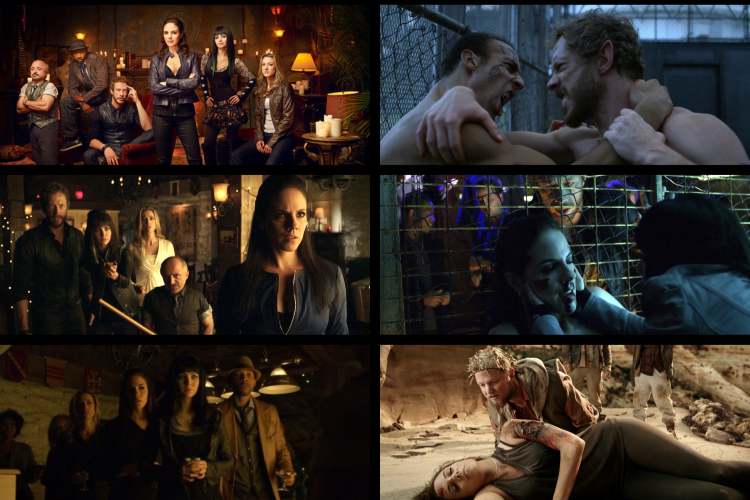
In Lost Girl, viewers are introduced to Bo, a succubus navigating a hidden world of Fae, mythical beings who coexist alongside humans. Bo’s journey of self-discovery leads her to reject the Fae’s rigid Light and Dark dichotomy, choosing instead to fight for the balance between the two worlds.
This Canadian supernatural drama was produced by Prodigy Pictures Inc. in association with Shaw Media’s Showcase channel. The series was developed with participation from the Canadian Television Fund (now the Canada Media Fund), the Canadian Film or Video Production Tax Credit, and the Ontario Media Development Corporation.
These funding sources are often utilized by Canadian productions to supplement financing, indicating a reliance on multiple funding avenues to support the series. The series has some side characters portrayed by some familiar faces. The series ended at season 5 but it could potentially have had more stories to be told.
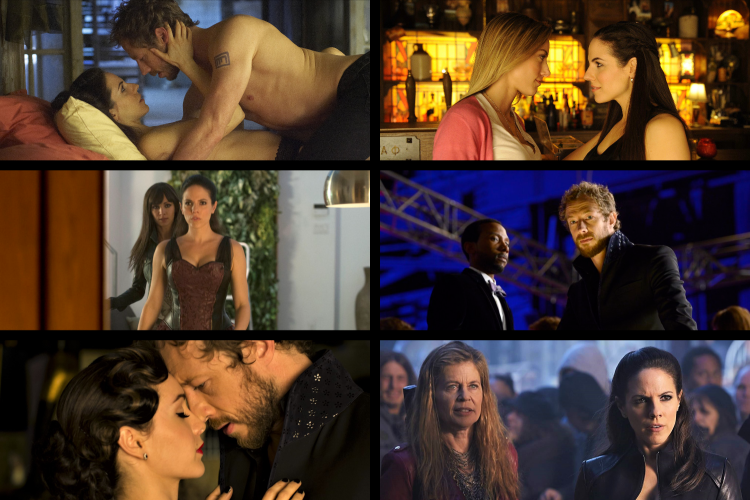
HIGHS
- Compelling Lead Character: Bo’s struggle with her succubus nature and her quest for independence makes her an empowering protagonist. In her quest, she learns that she doesn’t need to live a life alone without relying on and trusting others.
- Diverse Representation: The series’ portrayal of lesbian/gay relationships looks normal without making a big deal out of it.
- Unique World-Building: The Fae mythology is richly detailed, with factions, politics, and lore adding layers of intrigue.
- Dynamic Supporting Characters: Kenzi’s humor, Dyson’s loyalty, Trick’s guidance, and Lauren’s intelligence provide balance and depth to the series.
LOWS
- Inconsistent Pacing: Some seasons feel rushed, with major plotlines resolved too quickly.
- Overused Tropes: Love triangles and repetitive romantic conflicts occasionally overshadow the larger narrative.
- Special Effects: The show’s budget constraints sometimes limit the quality of its visuals.
- Hale: Hale starts as Dyson’s work partner. This may not be an unpopular opinion, but I find him annoying sometimes, and how Kenzi chooses him over Dyson is beyond my comprehension.
THEMES EXPLORED
- Freedom and Choice: Bo’s refusal to align with either the Light or Dark Fae highlights the importance of self-determination.
- Identity and Acceptance: The series emphasizes embracing one’s true self, regardless of societal expectations.
- Love and Loyalty: Relationships, whether romantic or platonic, are central to Bo’s journey.
- Femininity and masculinity: The lead is extremely feminine, and the series does not shy away from making all the other women feminine and shine in their own way. Dyson keeps up the masculine flag throughout the whole series. I love to see it.
My Rating: 7/10
GRIMM (2011–2017)
Creators: Stephen Carpenter, Jim Kouf, and David Greenwalt
Starring Cast: David Giuntoli (Nick), Russell Hornsby (Hank), Elizabeth Tulloch(Juliette), Silas Weir Mitchell (Monroe), Sasha Roiz (Captain Renard), and Bree Turner (Rosalee)
Seasons: 6 (streaming for free with ads on the Roku channel and freevee. Also on Peacock, Amazon Prime, and Apple TV+
Favorite seasons: #4, #5
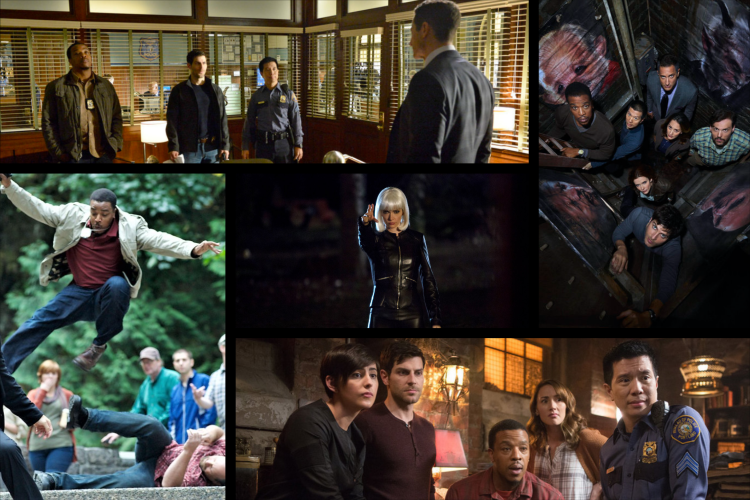
Grimm blends procedural crime drama with dark fairy tales, creating a fascinating world where folklore comes to life. The series follows Nick Burkhardt, a homicide detective in Portland who discovers he is a Grimm, a guardian responsible for keeping the balance between humanity and mythological creatures known as Wesen. As Nick navigates his newfound responsibilities, he battles dangerous creatures, uncovers family secrets, and grapples with the moral complexities of his role.
As a U.S. network series airing on NBC, Grimm likely had a higher budget than Lost Girl and Haven. However, compared to other prime-time network shows, Grimm may have operated with a moderate budget, as indicated by its use of practical effects and selective CGI. The series had an almost Grimm ending that could have been poetic, living up to one of the meanings of the series’ name, “cruel,” but it ended more on the other meaning, which is “fierce.”
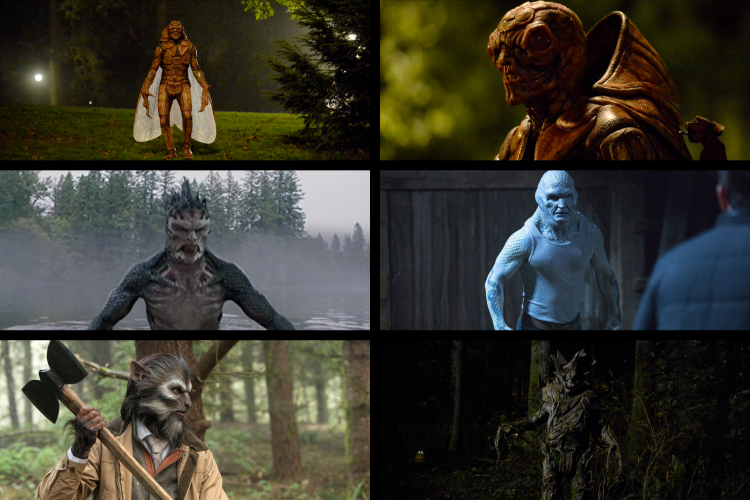
HIGHS
- Inventive World-Building: The integration of fairy tales and mythology into a modern-day setting feels fresh and imaginative, making each episode an exciting discovery.
- Character Dynamics: The relationship between Nick, Monroe (a reformed Blutbad), and Rosalee is heartwarming and provides emotional depth. Monroe’s encyclopedic knowledge of Wesen lore adds humor and charm.
- Villains and Intrigue: Captain Renard’s ambiguous loyalties and the growing threat of the Wesen Council create tension that keeps viewers hooked.
- Visual Effects: The makeup and CGI for Wesen’s transformations are highly creative, elevating the series’ fantasy element.
LOWS
- Repetitive Structure: The “monster-of-the-week” format in the early seasons can feel formulaic and predictable. It did not bother me as I’m used to a similar format in other series, but I can see it being annoying for someone not accustomed to it.
- Underdeveloped Subplots: Some arcs, like the key storyline, are introduced with great potential but resolved too quickly or without full exploration.
- Uneven Pacing: The show sometimes struggled to balance standalone episodes with its overarching narrative, leaving some plotlines feeling rushed.
THEMES EXPLORED
- Identity and Legacy: Nick’s journey as a Grimm explores how individuals reconcile their inherited roles with personal values and find purpose.
- Morality and Balance: The series questions the ethical dilemmas of punishing Wesen based on their nature versus their actions. You will see the bad turned into good, but most interestingly is the good turning bad (not so good anymore).
- Community and Friendship: The importance of allies and trusting relationships is a recurring theme, especially in Nick’s interactions with Monroe and Rosalee. Over time, friends become family.
My Rating: 7/10
WHY UNDERRATED?
These series are often overlooked in favor of more mainstream productions. Their lower budgets compared to today’s overpriced shows might have contributed to a lack of widespread recognition since they may not have had the promotional budget compared to other series.
PROMOTIONAL BUDGET
However, their imaginative storytelling, memorable characters, and willingness to tackle unconventional themes make them stand out. Their creators brought new concepts to the table, and they were mostly ignored by viewers. These series are not perfect, but they entertain.
I remember at the time, within my circle of friends, there were only a few of us who were watching the series. I believe this is the reason why these series are not part of the zeitgeist, despite being so entertaining and taking into consideration that the themes they cover may not be popular.
THEMES
When it comes to relationships, sacrifice, duty, love, and loyalty are not considered important. Everything is superficial these days. Onscreen femininity and masculinity have been sidelined for masculine female and feminine male, Morality and Balance are fought daily, real communities and friendships have been replaced with online safe spaces (online fake communities where people don’t know each other but pretend they do), and Followers (fake online friends that you may have never me in real life).
VIEWERS
It’s funny to me how some people are constantly asking for something new, but when they get it, they complain it’s not like the old or they dismiss it. I can understand how this can be confusing to creators. I wish they would pay less attention to the noise and focus on what they want to make.
FINAL THOUGHTS
While many lament the state of modern television, complaining about uninspired reboots/remakes with modern tropes, these shows remind us that the past offers a wealth of entertainment. Instead of bemoaning current trends, why not revisit these unconventional series?
They provide the perfect antidote to reboot fatigue, proving that entertaining stories have no expiration date. Support is needed to show with data that streaming the original version is a better option than remaking the series, especially when they are not that old. For example, there are rumors of a Grimm remake. I don’t think it is necessary. Just watch the series.
So, the next time you’re scrolling through endless streaming options, consider trying Haven, Lost Girl, or Grimm. You might just find your new favorite escape in their rich and unconventional worlds.
All images in this publication belong to the original creators and are used as references under fair use.
My notes are all set. Let me know what you think.
See you on the next page!

